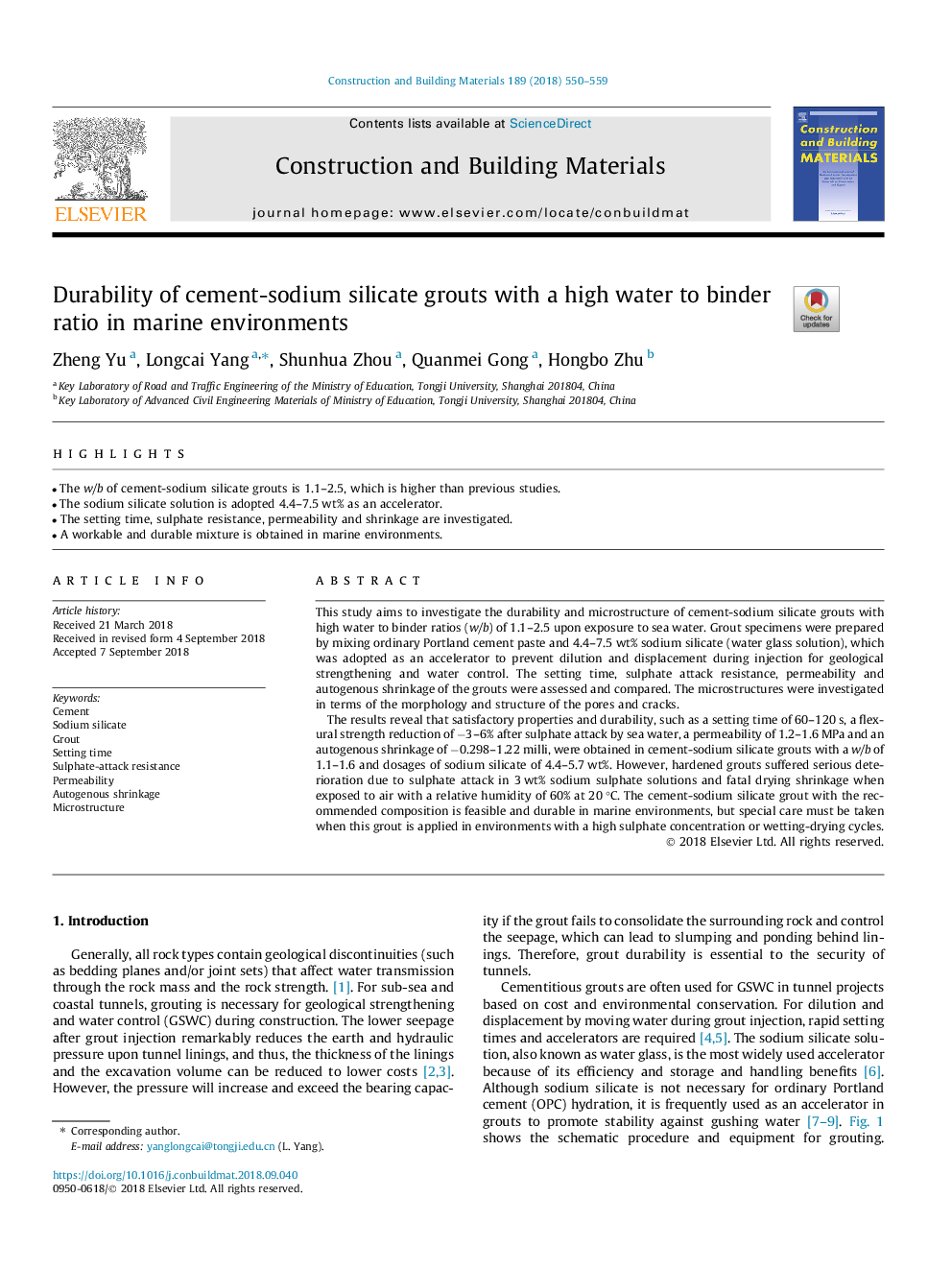| Article ID | Journal | Published Year | Pages | File Type |
|---|---|---|---|---|
| 10145702 | Construction and Building Materials | 2018 | 10 Pages |
Abstract
The results reveal that satisfactory properties and durability, such as a setting time of 60-120â¯s, a flexural strength reduction of â3-6% after sulphate attack by sea water, a permeability of 1.2-1.6â¯MPa and an autogenous shrinkage of â0.298-1.22 milli, were obtained in cement-sodium silicate grouts with a w/b of 1.1-1.6 and dosages of sodium silicate of 4.4-5.7â¯wt%. However, hardened grouts suffered serious deterioration due to sulphate attack in 3â¯wt% sodium sulphate solutions and fatal drying shrinkage when exposed to air with a relative humidity of 60% at 20â¯Â°C. The cement-sodium silicate grout with the recommended composition is feasible and durable in marine environments, but special care must be taken when this grout is applied in environments with a high sulphate concentration or wetting-drying cycles.
Related Topics
Physical Sciences and Engineering
Engineering
Civil and Structural Engineering
Authors
Zheng Yu, Longcai Yang, Shunhua Zhou, Quanmei Gong, Hongbo Zhu,
